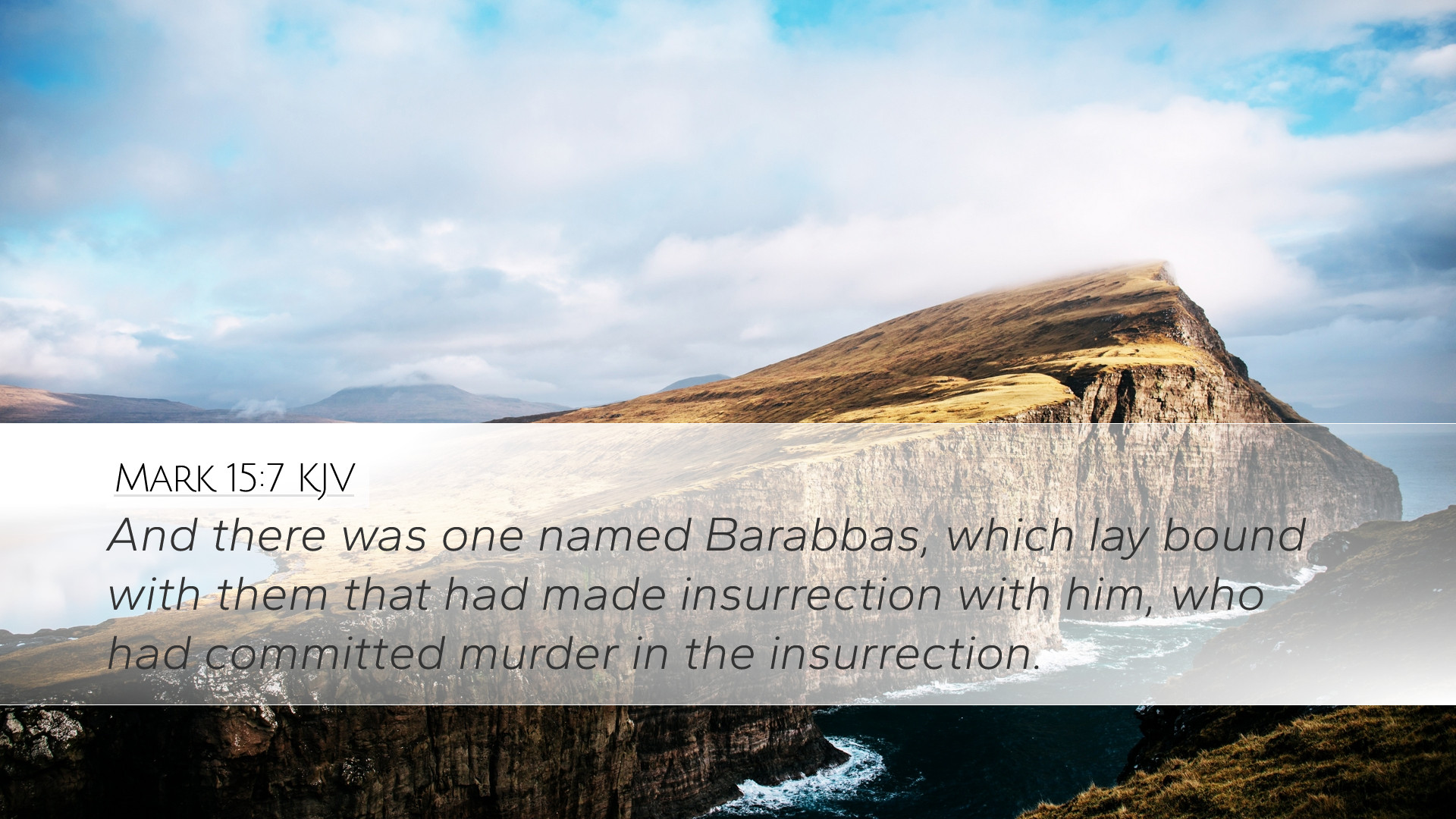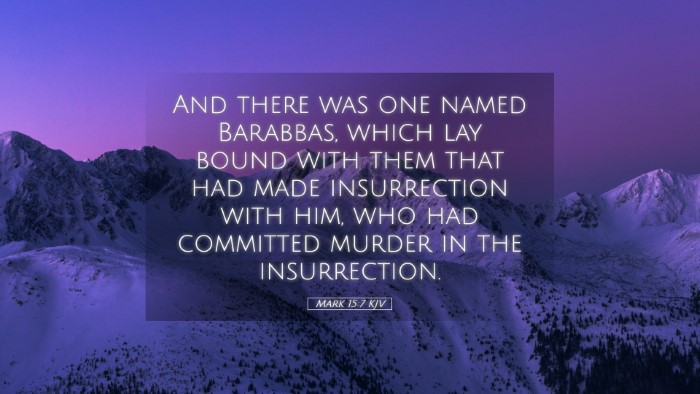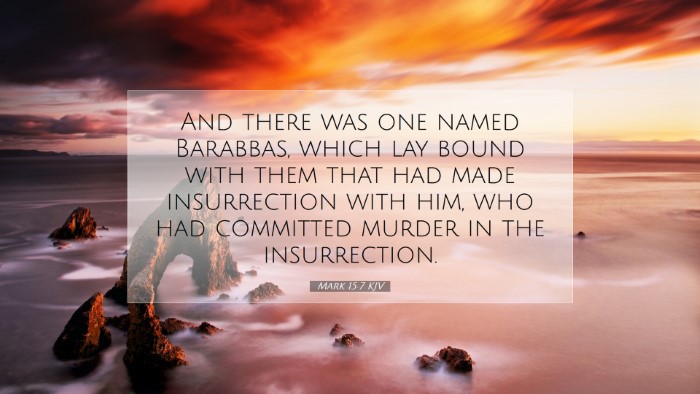Commentary on Mark 15:7
Bible Verse: Mark 15:7 - "And there was one named Barabbas, which lay bound with them that had made insurrection with him, who had committed murder in the insurrection."
Introduction
This verse presents the character of Barabbas, a criminal chosen for release in place of Jesus, highlighting the contrast between innocence and guilt. The events surrounding this choice illuminate key themes of justice, substitution, and the fulfillment of prophecy.
Insights from Matthew Henry
Matthew Henry notes that Barabbas was involved in a serious crime, participating in insurrection, which denotes rebellion against the Roman authority. His actions of murder depict the gravity of his offenses and serve as a stark representation of human sinfulness in contrast to Christ's righteousness.
Henry emphasizes the profound irony of the situation where a man labeled as a “notorious prisoner” is set free while the sinless Son of God is condemned. This exchange not only points to the innocence of Jesus but also illustrates the heart of the Gospel, where the guilty are absolved through the sacrificial love of Christ.
Insights from Albert Barnes
Albert Barnes provides additional context regarding Barabbas, asserting that his name, which means “son of the father,” ironically reflects the true identity of Jesus, the Son of God. He draws attention to the political implications of the crowd’s choice, suggesting that the release of Barabbas over Jesus was likely due to the unrest among the Jews concerning Roman rule.
Barnes posits that Barabbas represents the people’s desire for a Messiah who would deliver them from oppression, a desire contrasted with the spiritual deliverance that Jesus offers. The preference for a violent insurrectionist over a peaceful savior reflects human tendencies toward immediate, earthly solutions rather than embracing divine grace and truth.
Insights from Adam Clarke
Adam Clarke elaborates on the historical context of the insurrection, indicating that Barabbas was perhaps a leader of a rebellion against Roman governance. Clarke views the selection of Barabbas over Jesus as a significant moment in the narrative of Christ’s passion, underscoring how societal pressures and political motivations can distort justice.
Clarke notes that the crowd was influenced by their leaders, who incited them to demand the release of Barabbas, which illustrates the pervasive nature of sin and corruption in human judgment. The choice made by the people serves as a cautionary tale about mob mentality and the rejection of divine authority.
Theological Reflections
The comparison between Barabbas and Jesus signifies a deeper theological truth regarding substitution and atonement. Just as Barabbas was set free while Christ took his place, believers are called to recognize the grace of God that spares them from the rightful penalty of sin.
- Substitutionary Atonement: Barabbas's release serves as a prime example of the principle of substitution, where the innocent (Jesus) bears the punishment due to the guilty (humanity).
- The Nature of Justice: The choice of Barabbas raises profound questions about justice and mercy, illustrating the conflict between divine justice and human injustice.
- Human Condition: The populace's choice showcases the fallen nature of humanity, whereby people often choose rebellion and violence over peace and righteousness.
Applications for Today
For pastors, students, theologians, and Bible scholars, Mark 15:7 serves as a powerful reminder of the continuing relevance of these themes in today's world:
- Reflection on Personal Choices: Believers are called to reflect on the choices they make and the influences that shape these decisions, ensuring they align with Christ's teachings.
- Understanding of Grace: The narrative invites deeper contemplation on the nature of God’s grace, as it is offered freely to those who are unworthy, akin to Barabbas.
- Addressing Injustice: Faith communities should engage with issues of justice, advocating for those who are marginalized or wrongfully judged.
Conclusion
Mark 15:7 challenges readers to confront the complexities of choice, justice, and grace. The story of Barabbas serves as a reminder of God’s redemptive plan, an invitation to embrace the freedom that comes through Christ amidst a world often marked by rebellion and injustice.


